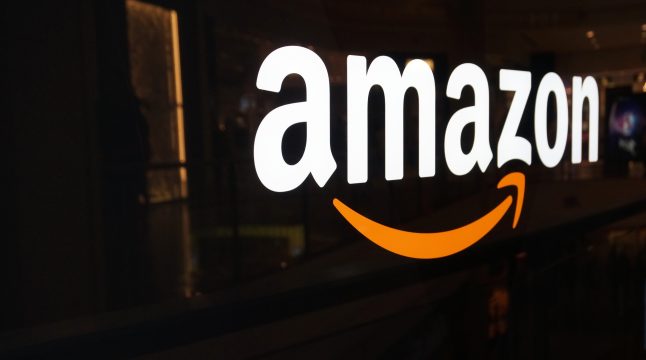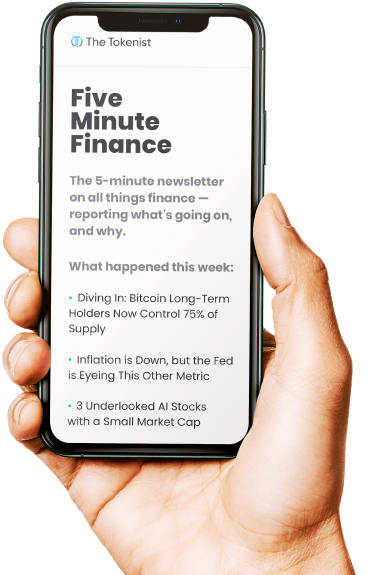
Why the AWS Outage was Good for Amazon’s Stock Price
Early Monday morning, for just over three hours between 3 AM and 6 AM Eastern Time (ET), Amazon Web Services (AWS) suffered a major disruption. Alongside Amazon’s own ecosystem such as Prime Video, Alexa and Ring doorbells, the outage disrupted the services of Zoom, Slack, Robinhood, Coinbase, WhatsApp, Signal, Reddit, news agencies, financial and banking apps, streaming platforms, and various gaming platforms.
By around 7 PM ET, Amazon attributed the disruption to its EC2 (Elastic Compute Cloud) network, responsible for running virtual servers. More specifically, that the update of Amazon’s domain name system (DNS), the internet’s ‘phonebook’ that translates website names into IP addresses, tied to EC2, delivered erroneous resolutions. Consequently, hosted websites were unable to retrieve their server addresses.
Yet, AMZN stock surged 1.3% over the day, a significant uptick given Amazon’s massive $2.34 trillion market cap. This is in stark contrast to the CrowdStrike (CRWD) incident in July 2024, when the cybersecurity company’s update caused the disruption of 8.5 million Windows-based systems, inducing up to $10 billion in global damages.
As a result, Microsoft’s stock dropped just under 1% by the day’s end, while CRWD stock declined by over 11% on July 19th market close. The question is, why did the AWS outage have the opposite effect?
Amazon’s Market Perception
In last week’s deep dive on Apple’s prospects, we noted that AMZN stock has the worst year-to-date performance of Magnificent 7 stocks. At present, Amazon is the only one with a negative performance at around 0.24%, below Apple’s 8% gains.
In late August’s coverage, we attributed this repositioning to Amazon’s slower AWS growth, despite holding global cloud computing market share of 29%, above Microsoft’s Azure at 22% and Alphabet’s GCP at 12%. Of the three cloud platforms, AWS delivered 17.5% year-over-year growth in Q2, greatly outpaced by Alphabet at 32% and Microsoft at 26%.
AWS’ Q2 revenue is still substantial at $30.9 billion, more than double that of Alphabet GCP’s $13.6 billion, but neck and neck with Microsoft’s Intelligent Cloud at $29.9 billion. This signaled to investors that Amazon is slowly reaching the end of its growth spurt.
Moreover, Amazon’s own Nova family of AI models is yet to enter the AI race competitively. Currently, Nova Premier has an Artificial Analysis Intelligence Index score of 32. For comparison, OpenAI’s ChatGPT-5 has a score of 68, Elon Musk’s Grok 4 scores 65, while Google’s Gemini 2.5 Pro attained 60.
Amazon’s only saving grace, as the single largest investor in Anthropic, is the company’s Claude 4.1 Opus score of 59. However, this trend is signaling to investors that Amazon’s AI approach is defensive rather than visionary. Accordingly, more capital is heading into Alphabet and Microsoft, despite OpenAI’s tenuous relationship with the legacy giant.
Yet, one could make a case that this perception of Amazon is deceptive.
Join our Telegram group and never miss a breaking digital asset story.
Why Amazon Doesn’t Need to Win the AI Race to Profit From It
Over the last five years, there has been a clear trend of fusion between corporate and government power. This has been accomplished through public-private partnerships (PPPs), whether the target is the military-industrial complex, cloud computing or even gaming.
The very Magnificent 7 stock cluster is an expression of the continuous centralization of power engineered to reinforce U.S. hegemonic influence. Amazon is perhaps the most integral of them all, not because of its e-commerce platform, but because of AWS.
Even before the AI hype, its infrastructure underpinned the altcoin market, the operations of governments and Fortune 500 companies. While Microsoft/OpenAI and Google battle for model supremacy, Amazon has positioned itself as the indispensable cloud workhorse.
As AI workloads continue to flood the cloud, AWS’s scale and enterprise relationship benefit from the AI model arms race. Irrespective of Nova family performance, Amazon demonstrates this strategy by investing in multiple AI ecosystems.
Case in point, AWS Generative AI Innovation Center, launched in 2023, doubled its funding this July by an additional $100 million. Combined with funding for data centers, automation, networking and AI tools, Amazon is steadily building the digital backbone of the AI economy itself.
Even if some elements of the AI ecosystem exhibit bubble-like tendencies, Amazon’s positioning remains fundamentally insulated.
Disclaimer: The author does not hold or have a position in any securities discussed in the article. All stock prices were quoted at the time of writing.
Could USG Curtail Amazon?
From a technical standpoint, having a single computing environment increases vulnerability, as an error can cascade through its vast reach and dependencies. At the same time, such an environment is the most cost-effective in terms of scaling. More importantly, having a centralized chokepoint as AWS is greatly beneficial for USG.
After all, centralization is a feature, not a flaw, from a governance perspective. This is why it is unlikely that Amazon will suffer any significant antitrust push. Such a scenario is also unlikely because a regulatory intervention would likely cause a national infrastructure disruption.
In the meantime, at a price-to-earnings (P/E) ratio of 33.84, most Wall Street analysts are bullish for AMZN stock. Against the current price of $216.48, the average AMZN price target is $265.66 per share. Even the bottom outlook of $230 is above the current price level, according to Wall Street Journal’s forecasting data.




